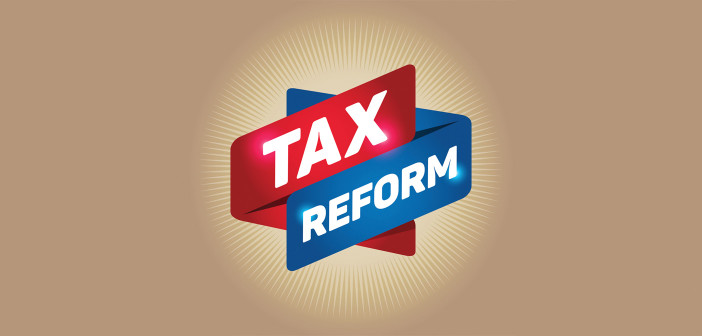As part of a tax reform package, the President and Congress have expressed a desire to sharply cut personal and corporate income tax rates in order to spur economic growth. The reality of the federal government’s fiscal situation presents a challenge to this.
Even at current tax rates, the federal government is projected to run substantial deficits for the foreseeable future. Any further loss of tax revenue runs the risk of fiscal crisis. The bond market will begin to question the government’s ability to repay what it has borrowed. The market may then demand higher interest rates in order to continue lending to the government or may stop lending to it altogether. Interest rates and inflation would spike if the government, like many others have, resort to printing money to cover the deficit. The economic consequences would be catastrophic.
The 2017 federal deficit is estimated to be approximately $600 billion. The government is expected to collect $1.8 trillion in personal income taxes and $400 billion in corporate income taxes. Elimination of the corporate income tax, which in a perfect world is not a bad idea, would push the budget deficit to $1 trillion per year. An income tax cut on the order of the Bush tax cuts would add $100-200 hundred billion dollars to the annual deficit.
The problem is that the government has promised to pay far more in benefits than it can afford. Unfunded Social Security and Medicare liabilities are estimated to run as high as $120 trillion dollars with the trust funds that help fund these programs projected to be depleted by 2030 (or earlier).
Over 75 percent of the federal budget is currently comprised by just Social Security, Medicare, Medicaid, defense, and interest on the debt. Given current tax revenues, there would need to be a 50 percent cut to everything else the government does in order to balance the budget. Thus, spending cuts to offset tax cuts seems unlikely.
Closing loopholes is a popular idea to offset tax cuts. Loopholes, or “tax expenditures” currently run at $1.34 trillion per year, which is more than enough to balance the budget and cut taxes. However, $1.2 trillion of them fall on the individual income taxpayers. Only $130 billion worth of loopholes fall on corporate taxpayers. Eliminating loopholes would be politically difficult, as individual income taxpayers would have to begin paying taxes on the value of employer provided health care, while losing the ability to deduct mortgage interest, charitable contributions, state and local taxes, losing the child tax credit as well as losing other popular deductions.
Taxes are a concern for the economy. At an average of 32 percent of income, taxes in the U.S. are only slightly less than the developed country average of 36 percent. If the United States wants to be a low-tax country, Congress and the President need to tackle entitlements and the defense budget. We cannot be a low-tax, high-spend country without inviting a future economic crisis.














